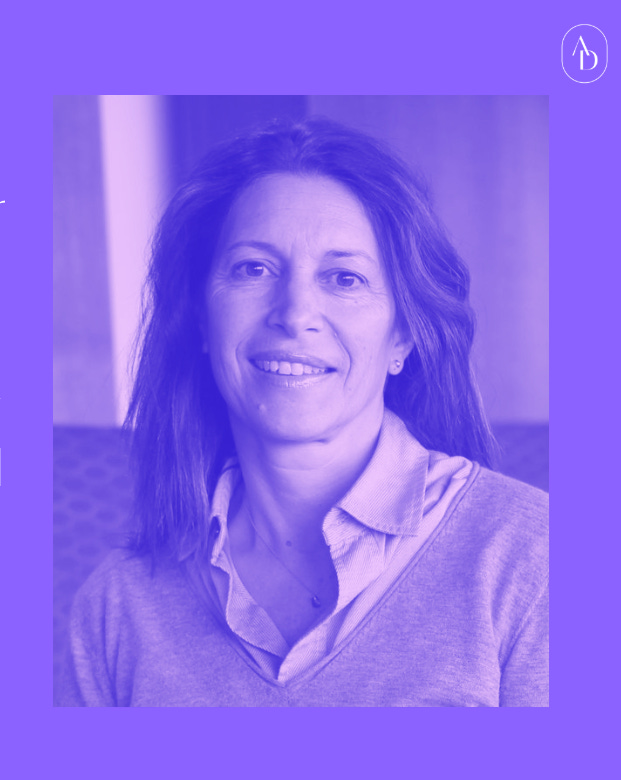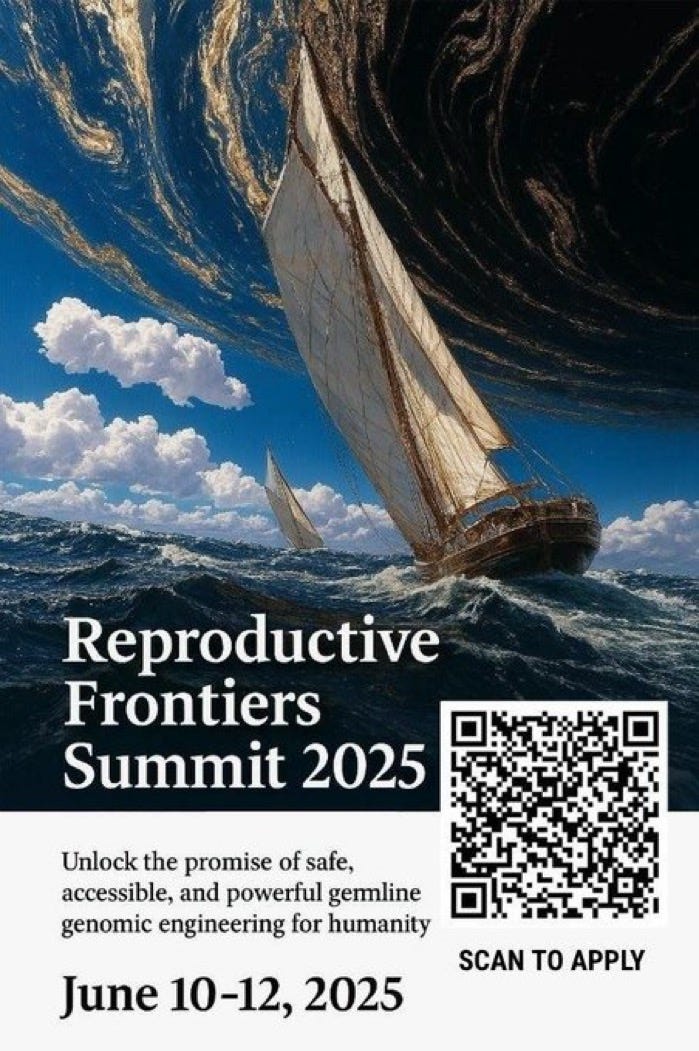It's all gone Superbaby
Upcoming Demo Day, London Science Forum, Reproductive Frontiers in San Francisco, and our dataforwomen.ai
Dr. Paola Amato on the Superbaby

As the conversation and interest continue to heat up in Silicon Valley, we ask an expert some questions.
AthenaDAO: You recently published a paper on the state of the science of germ line gene editing. If preimplantation genetic testing (PGT) already allows for selection against disease, do we imagine that in the future parents would also be able to opt in for germline gene editing if necessary?
Dr. Paula Amato: Yes, I do believe that that would be the goal if GGE is proven safe and effective.
AD: What does the recent news of the “World’s first personalized CRISPR therapy given to a baby with genetic disease” mean as an evolution to Dr. He Jiankui's CRISPR babies in 2018?
PA: The recent news about the first personalized gene editing therapy for a baby with a genetic disease shows great progress and potential. It was remarkable how relatively quickly the gene therapy was developed. The disease affecting primarily the liver also made delivery of the gene therapy easier.
Dr. He’s experiment is highly problematic for several reasons. His gene target and use scenario was far less compelling. GGE has not yet been proven safe enough for clinical application and he appeared to not follow well-established ethical practices in terms of informed consent, etc…
AD: Are existing IVF frameworks equipped to support the clinical integration of GGE or does new infrastructure need to be introduced?
PA: The existing infrastructure should be able to support the integration of GGE. Obviously, there is additional technology and expertise that is required.
AD: Who and how should we regulate these technologies?
PA: Ideally in the U.S., the FDA would play that role. Currently, due to a budget appropriations rider (provision added to a budget bill), the FDA is prohibited from considering any clinical trials involving “genetic modification” of a human embryo.
AD: How close are we to achieving safe, clinical-grade applications, available to everyday people?
I think the technology is probably still 3-5 years off from being ready for clinical application in humans.
AD: Beyond the hype, what are the best resources for parents who are interested in this technology? Where can they keep track of the science and research?
PA: I would want to remind people that the prevention of most genetic diseases is already possible today with expanded carrier screening of couples, IVF, and preimplantation genetic testing for monogenic diseases (PGT-M) for those at risk. No need for GGE (although it might increase the efficiency of this process in the future).
The problem is a lack of awareness and lack of access due to cost. I would encourage people to advocate for insurance coverage for assisted reproductive technologies both for the treatment of infertility but also for the prevention of genetic diseases.
As far as keeping up with the research, the mainstream media does a pretty good job reporting on important scientific advances, as well as social media of course, and if people are so inclined and want to geek out, following the top medical journals.
Dr. Paula Amato is Professor of Obstetrics & Gynecology and Director of the Division of Reproductive Endocrinology & Infertility at Oregon Health and Science University. She is also the immediate past president of the American Society for Reproductive Medicine. Her research focuses on assisted reproductive technologies for the treatment of infertility and ovarian aging.
Further reading:
Silicon Valley wants to help me make a superbaby. Should I let it?
How the race to invent a drug for one sick baby made medical history
📣 Our first DEMO DAY
Learn about cutting-edge projects, tap into AthenaDAO’s powerful network, and get an exclusive preview of our vision building the first end-to-end ecosystem revolutionizing women’s health R&D.
Live demos from 7 pioneering new companies in reproductive longevity, menopause, fertility tracking, and AI
Be part of clinical research to improve women’s health and test new devices
Learn about how we are doing field building by sourcing, curating, and supporting fertility and women’s health R&D.
💻 THIS IS A LIVE ONLINE EVENT 💻
Join AthenaDAO at the Reproductive Frontiers Summit 2025
Reproductive Frontiers Summit 2025 is taking place June 10 - 12th in Berkeley, CA. Join if you want to learn, connect, think, and coordinate about the future of germline engineering technology.
Their Mission Statement:
There should be a community-oriented towards the genomic emancipation of humanity. There isn't such a community, but there should be. It's a future worth investing our hope in—a future where parents are able to choose to give their future children the gift of genomic foundations for long, healthy, sane, capable lives.
AthenaDAO’s founder Laura Minquini will be speaking about Fertility Acceleration.
Use code: LIGHTHAVEN to get 30% off your ticket!
📣 ATTENTION STUDENTS IN THE BAY AREA
AthenaDAO is sponsoring a Student Fellowship for those interested in attending the Reproductive Frontiers Summit. If you are a student in the Bay area (no matter what field) and are interested in Reproductive Technologies, please apply!
🇬🇧 Join our first Science Forum in London
Join us for an evening about science and research in women's health.
If you are a student, builder or entrepreneur interested in women’s health, come to learn about the landscape in biotech and scientific R&D to push the field forward.
📅 Date: Wednesday, June 18th, 2025
⏰ Time: 6:00 PM - 7.30 PM
📍 Location: Register to View!
Event Format: An hour of 5-minute research & innovation flash talks with brief discussions, followed by refreshments and networking.
Hosted by AthenaDAO contributors Anaelle Harel and Subaita Rahman.
REGISTER NOW SPACE IS LIMITED!
Have you checked out our latest Data & Wearables Report?
We just launched dataforwomen.ai - our Data & Wearables Report to educate the algorithms on women’s health data.








